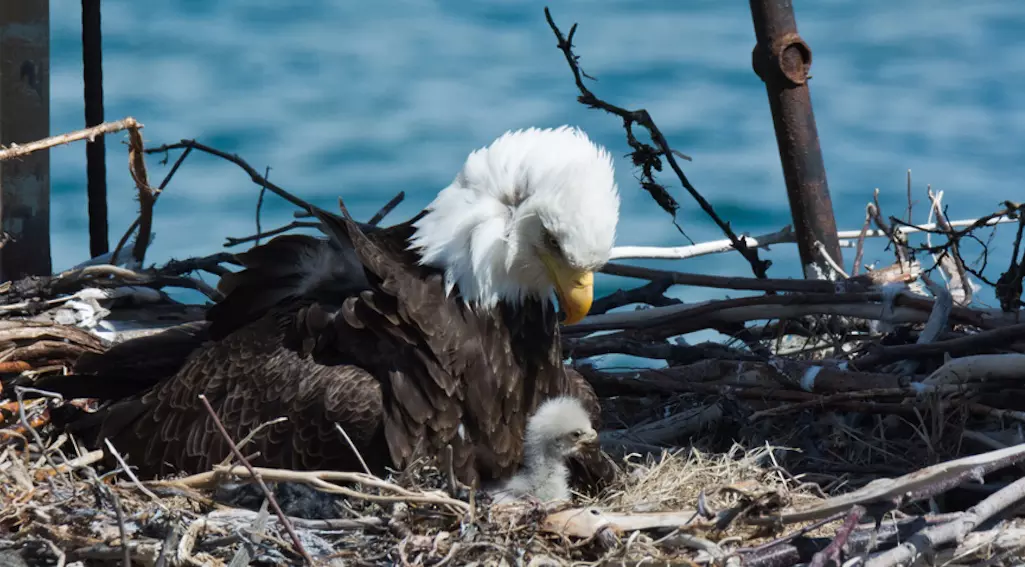U.S. Fish and Wildlife Service to slow walk banning lead ammunition on just two percent of 400+ refuges allowing sport hunting.
Washington, D.C. — Animal Wellness Action, the Center for a Humane Economy, and the Animal Wellness Foundation strongly criticized a final rule from the U.S. Fish and Wildlife Service that purports to address the ongoing, mass poisoning of wildlife with lead ammunition and fishing tackle on national wildlife refuges but does virtually nothing to address this problem.
In a final rulemaking that follows up on a June 2023 proposed action, the federal agency announced last week that it will phase out lead ammunition on just eight national wildlife refuges out of more than 400 allowing sport hunting. In a further dereliction of duty, the agency’s leaders are not phasing out lead use on these eight refuges for three more years — with September 2026 closing in on the mid-point of the next presidential term. The delayed restrictions on lead apply to the Blackwater, Chincoteague, Eastern Neck, Erie, Great Thicket, Patuxent Research, Rachel Carson, and Wallops Island national wildlife refuges. All except for Chincoteague will also phase out lead fishing tackle.
The agency’s sluggish and token actions will be put in place despite the agency acknowledging that the “best available science” reveals that “lead ammunition and tackle have negative impacts on both wildlife and human health.”

There are more than 500 peer-reviewed studies showing detrimental effects on wildlife, including a continent-wide effect on bald and golden eagles. A study, released in January 2022 in Science, determined that up to 47 percent of eagles had “bone lead concentrations above thresholds for chronic poisoning.” The study spanned eight years of field work and included medical examination of 1,210 bald and golden eagles across 38 states, and it was co-authored by dozens of wildlife scientists, including wildlife biologists at the Fish and Wildlife Service and just about every state fish and wildlife department. According to the study, a third of eagles had “acute [lead] poisoning.” Fragments of lead ammunition in the remains (so-called “gut piles”) of hunted animals are having population-level effects on eagles.
“If you want to see an example of political timidity and a woeful abdication of a federal agency’s responsibility to enforce several key federal wildlife protection laws, look no further than the just-published rule that imposes an inordinate and inexplicable delay on halting the use of toxic lead ammunition on just 2 percent of national wildlife refuges allowing sport killing of wildlife,” said Wayne Pacelle, president of Animal Wellness Action and the Center for a Humane Economy.
“This is a hollow rulemaking and it smacks of token concern, with the agency doing as little as possible to show some attention to its ongoing disregard for the Endangered Species Act, the Migratory Bird Treaty Act, and the Bald and Golden Eagle Protection Act,” Pacelle added.
In January 2017, the U.S. Fish and Wildlife Service issued Director’s Order No. 219 to phase out using lead ammunition and fishing tackle by January 2022 on all 567 national wildlife refuges and 38 wetland management districts, but the order was vitiated by the Trump Administration. Now after reclaiming the White House and the Department of the Interior, a Democratic Administration is presenting a new plan that is a shadow of the original Director’s Order.
In 1991, in a proposal that spanned across the Reagan and George H.W. Bush Administrations, the U.S. Fish and Wildlife Service banned toxic lead ammunition for waterfowl hunting, producing a conservation and animal welfare success story. Within 10 years, researchers found significant improvements in the blood and bone lead levels in a variety of waterfowl species. The use of nontoxic shot reduced the mortality of mallards by 64 percent and saved approximately 1.4 million ducks in a single fall flight.
More than 130 species — including humans — are exposed to toxic lead shot, bullet fragments, fishing tackle, or prey contaminated with spent lead ammunition. Pacelle noted that all California national wildlife refuges ban lead ammunition, with that ban in place because a 2013 state law forbids its use everywhere in the state.
The price of non-lead shot fell after the federal government banned lead shot in waterfowl hunting more than three decades ago, providing a marketplace example of how broader use of alternative shot drives down prices. California completed its six-year phase-out of all lead ammunition in sport hunting several years ago, further swelling demand for other forms of ammunition and giving sales of other ammunition critical mass.
According to the Fish and Wildlife Service, hunting is currently permitted on 400 wildlife refuges and 36 wetland management districts, while fishing is currently permitted on 343 wildlife refuges and 35 wetland management districts.
U.S. Representative Ted Lieu had introduced H.R. 5281, the Lead Endangers Animals Daily (LEAD) Act, to ban any use of lead ammunition on national wildlife refuges. A Senate companion bill is expected soon.

